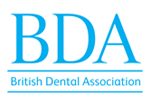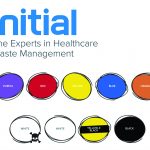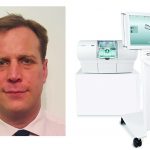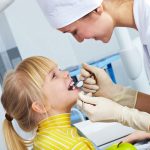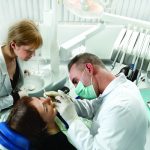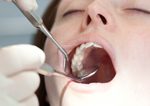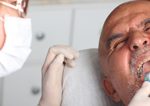This week the Huffington Post asked the British Society of Paediatric Dentistry (BSPD) and the Oral Health Foundation for tips for parents on how to teach kids about the importance of looking after their teeth, and how to make trips to the dentist less of a chore.
Nearly 43,000 children and teenagers in England and Wales had hospital operations to remove teeth last year, NHS figures show.
According to the Huffington Post, Councillor Izzi Seccombe, chairman of the Local Government Association’s (LGA) Community Wellbeing Board, said the figures show we have an oral health crisis” and called for money raised from the sugar tax to be invested in “innovative oral health education so that parents and children understand the impact of sugar on teeth and the importance of a good oral hygiene regime”.
“Untreated dental care remains one of the most prevalent diseases affecting children and young people’s ability to speak, eat, play and socialise,” she added.
“These figures also highlight how regular check-ups at a dentist can help prevent tooth decay and the need for hospital treatment.”
Here are the tips:
1. Take them on a few visits before it’s their turn
A clinical director of Revive Dental Care and trustee of the Oral Health Foundation, Dr Ben Atkins said: “Getting younger kids to join you or an older sibling on a trip to the dentist is a good way of getting them used to the sights and sounds of a dentist’s room and understand there is nothing to worry about.
“Start them early, take them to the dentist before their first teeth even start to appear,” he explained.
“As soon as they are born, at my practice, we welcome babies, because then by the time they need to jump on the chair they have visited two or three times and the hardest decision is which sticker to take home.”
2. Start them early
Claire Stevens, BSPD president, told the Huffington Post about the Dental Check by One campaign, introduced to raise parental awareness of the importance of taking young children to the dentist when their first teeth come through.
“If you can start your child going to the dentist early, then as they grow up, they are not anxious – it’s a positive experience,” she explained.
3. Act as a role model
“Much of children’s anxiety comes from their parents or carers,” explained Dr Atkins. “Try to ensure you do not pass this on to the kids by avoiding speaking about bad experiences.”
One way to do this is for parents to also book an appointment themselves directly ahead of their child’s, so they can see that there is nothing to be afraid of. However, if parents are very nervous then they should be advised to have their appointment on a different day, so nerves can be treated separately.
4. Explain exactly what happens
A child may not remember his/her last appointment.
Fear of the unknown can make the whole experience seem even more daunting.
“Speak through with them exactly what will happen during their dental visit so they know what to expect,” Dr Atkins said.
5. Ensure they are comforted and rewarded
“Let them take something to comfort them, a favourite toy or book or even music can help calm them,” said Dr Atkins.
“Also after the appointment, rewards do work too, but make sure it is not sweets, – a special trip after or a new book can motivate them.”
6. Give them the option of where to sit
“The big dentist’s chair (especially when a child is so little) can seem incredibly scary, so don’t worry if the first few times they don’t make it on there alone,” parents are advised.
“Letting them sit on your lap is a great way to comfort them,” said Dr Atkins. “I find giving the patient the option: ‘Where would you like to sit, on daddy’s knee or on the chair on your own?’
“This gives the child control, and visiting the dentist is all about control, if the child feels that they are in control then a visit to the dentist can feel like a breeze.”
7. Make the experience fun
Claire Stevens commented that as a child grows older, they can climb onto the chair themselves and try to enjoy the experience of the “big chair”.
“A lot of children enjoy the fun of the moving chair going up and down,” she said. “That’s how I get my patients to feel at home in my surgery.”





